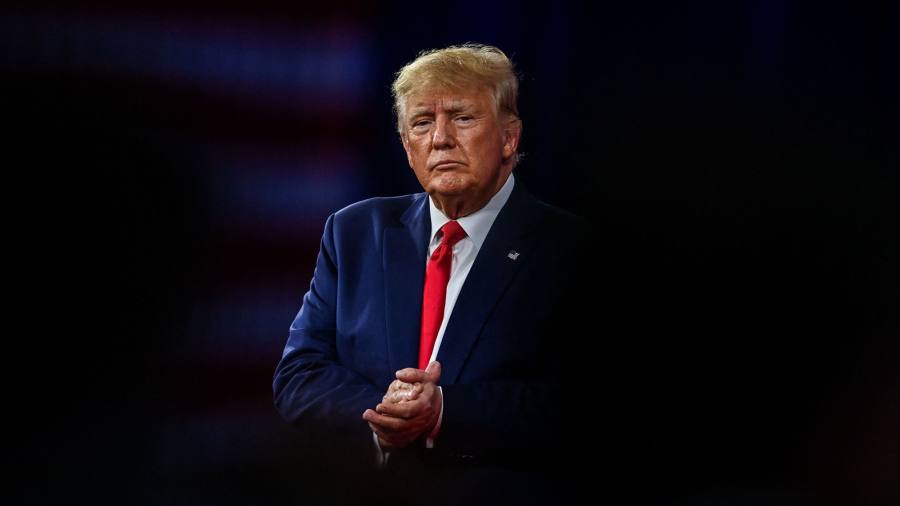
The indictment of Donald Trump takes America into truly uncharted waters. Never before has a current or former US president faced criminal charges. The indictment brought against him in New York falls well short of the allegations being investigated elsewhere that he fomented an assault on the US Capitol to overturn the result of an election. Pursuing him on lesser counts risks boosting his standing with supporters, even swelling his chances of a return in 2024. Trump will claim it vindicates his narrative that a “deep state” is out to get him. The risk of violence is real. Yet the rule of law is the foundation upon which democracy is built. Compromising on one fatally wounds the other.
It is mere chance that the first charges against Trump — related to whether “hush money” paid to the porn actress Stormy Daniels violated campaign finance and accounting laws — are the least grave of four inquiries. The Department of Justice’s special counsel, Jack Smith, is investigating Trump’s role in the Capitol riot. Potential charges range from obstruction of Congress to sedition, though the latter would require possibly unrealistic burdens of proof. Trump’s alleged attempt to suborn Georgia state officials to “find” missing votes in the 2020 election and reverse its electoral college result may yet be the next case to be put to a grand jury.
Though the indictment brought by Manhattan district attorney Alvin Bragg has not been unsealed, it seems to rest on a somewhat novel use of state laws against falsifying business records. It would be advisable for the trial judge to allow higher courts to rule on whether that tactic is permissible before, rather than after, presenting the evidence to a jury. That would give Trump a forum to make his case that he is being unfairly singled out. It would also reduce the chances of him being found guilty and then having his conviction overturned on appeal, undermining trust in US institutions.
Yet Bragg has done an important service. By treating Trump as a normal suspect, he has made it easier for other public prosecutors to move ahead with potentially more serious allegations. If these meet the legal standards for indictment, they must be pursued. A prosecutor’s job is to focus on whether a case is fit to be brought and there is proof beyond reasonable doubt to support a conviction, not to weigh the social and political ramifications.
Today’s and any future charges will greatly inflame the Trump base. But the fact the former president has repeatedly warned of unrest is no grounds to hold back from charges that are well founded. Refraining from legal pursuit of someone because they threaten to rouse a mob would create a treacherous precedent. To ordinary Americans who would routinely be prosecuted for the minor felony or misdemeanour of falsifying business records, the fact a former president is not above the law also sends a huge signal.
We cannot yet know what these charges will mean for the chances of a Trump return in 2024. They might yet be helpful to Florida governor Ron DeSantis, whose best approach is to present himself as a more electable alternative. Many Republicans now claim the legal system has been weaponised as a partisan tool by Democrats.
This is not so. Bragg’s efforts will stand or fall on the strength of his case before judges and juries. Special counsel Jack Smith was selected precisely for his independence and probity. The burdens of evidence demanded by the legal system are high. Every American has a stake in the strength of that system; attacking its foundations is reckless. It is ultimately in the interests of Republicans, too, to allow the wheels of justice to turn.